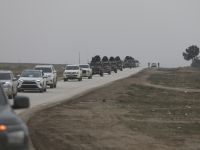Lebanon’s ranking in the World Bank’s annual report Doing Business, which measures ease of doing business in 189 economies, slipped from 121 in 2014 to 123 in 2015, a sign that the country did not make any serious efforts in introducing reforms and improving the business climate.
The report gave Lebanon a score of 56.39 out of 100 over 10 categories in 2015 compared to 56.5 in 2014.
“Lebanon is among 38 countries that did not implement any reforms while the rest 151 countries made serious changes to improve their rankings,” Nassib Ghobril, head of research department at Byblos Bank, told The Daily Star.
To the contrary, Ghobril said, Lebanon complicated the procedures for registering a property by increasing the number of days for completing this task to 34.
He said that rankings of subcategories are embarrassingly low which explain the drop in Lebanon’s ranking by two notches. “The ease of getting a construction permit subcategory dropped by one spot from 129 to 130 for instance,” he added, saying that getting electricity also declined by five spots to 116.
Ghobril added that enforcing a contract also dropped by one spot to 135 with a score of 49.8 out of 100. “It takes 721 days to enforce a contract and resolve a conflict while the cost amounts to 31 percent of the claim,” he said.
He added that starting a business subcategory dropped by six spots to 114 while its distance to frontier is 82.7, which is very good but which means that there exists a great competition in this field among countries to improve their environment to start a business.
Ghobril said that Lebanon’s ranking is to be blamed on the lack of reforms and not on the regional conflicts. “The complications of the various procedures in Lebanon have nothing to do with regional conflicts,” he said. “Lebanon must make internal efforts in a bid to improve its business climate.”
Economists and investors have frequently complained that red tape and corruption in government departments are widespread and have urged the authorities to tackle these phenomena because they are having a bad impact on the ease of doing business in the country.
The report also added that 11 out of 20 economies in the Middle East and North Africa (55 percent) implemented at least one reform making it easier to do business in the past year, 21 in total – more than the region’s annual average of 16 reforms over the past five years.
The area with the largest number of reforms implemented by the region’s economies was Getting Electricity (4), followed by Starting a Business, Dealing with Construction Permits, and Trading across Borders (3 each). No reforms were recorded in the area of Resolving Insolvency.
The report said that Morocco and the United Arab Emirates continued to lead the region in reforms improving business regulation, with 4 each. Algeria, Oman, Tunisia, and West Bank and Gaza were the other economies in the region recording multiple reforms.
Morocco made starting a business easier by eliminating the need to file a declaration of business incorporation with the Labor Ministry. It also made registering property easier by setting up electronic communication links between various tax authorities.
As for the United Arab Emirates, it made enforcing contracts easier by implementing electronic service of process, by introducing a new case management office within the competent court, and by further developing the “Smart Petitions” service, which allows litigants to file and track motions online.
Meanwhile, Oman made the biggest improvement globally in the area of Getting Electricity, by enhancing its tracking of the duration and frequency of power outages.
Also, Saudi Arabia improved the most in Registering Property, thanks to the introduction of a new computerized system at the land registry.








